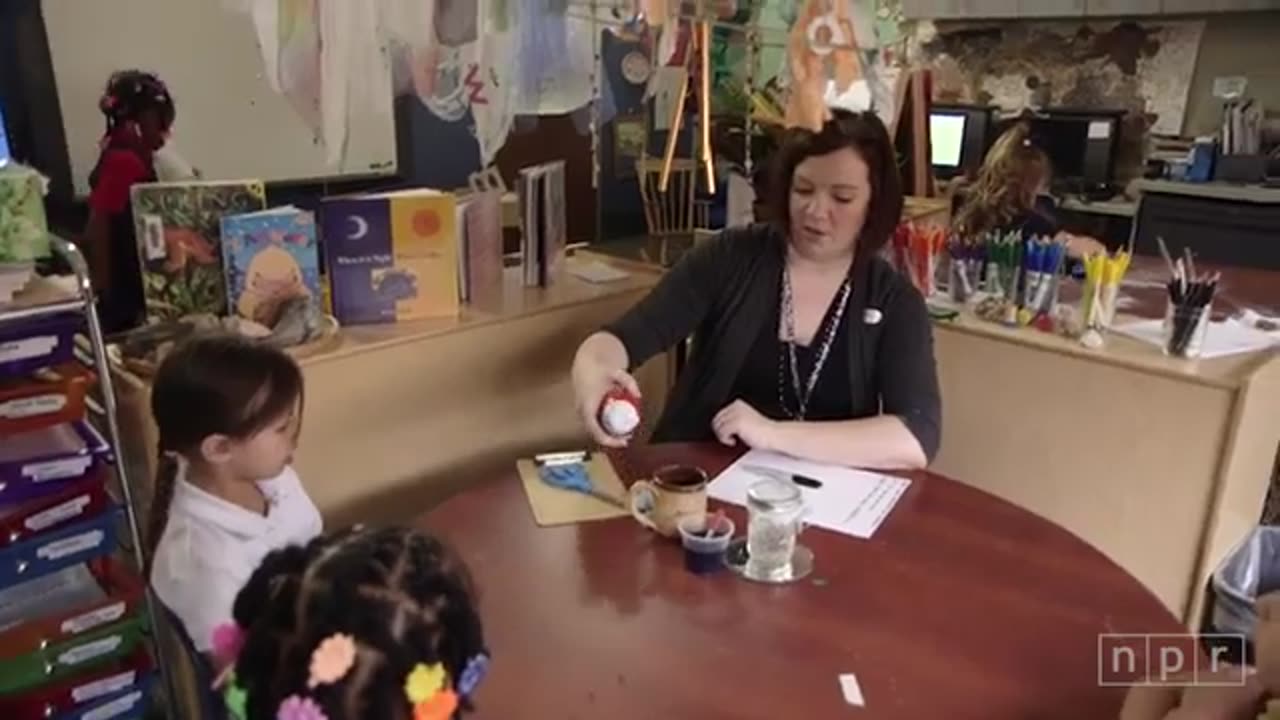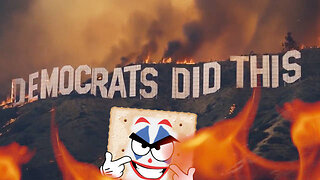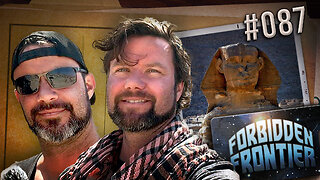Premium Only Content

a way of running friendly pre-schools
Good pre-school principles. How are they related to the 10 Mitzvot given by Moshe (Moses), I can think of 'thoug shalt not covet anything which belongs to thy neighbor' and thus such principles may be related to the ability to explore, choose learn how to be creative, and it helps in developing proper self-esteem.
The opposite is for instance seen in detective series ('follow the trail and find out what crooks are after') like one series which I watched last week of 'Mc Cloud'. (episode named 'the man with the golden hat').
My dad watched Mc. Cloud. I watched by the side (had not developed much awareness thereof). Yet watching this, sometimes reminds me of 'that'. Why I watch such series, differing reasons, among which they help me in processing. 'Well', my dad had apparently leaned some type of 'judoka'. Which was revealed, after a 'professional' burglary because it was not ever known.. He just worked them out 'on his own' and that was that what my dad was concerned, but what grieved him was that they did this with him. My dad was the kindest 'with everyone connecting' non-position oriented person, and he believed such burglaries offended him, which was connected with his childhood-trauma's.
Not coveting is a Mitzvah which is inexhaustible concerning it's emploration (not 'exploitation'0 thereof. Not for naught they are among our most precious basic principles in TeNaCh.
Some think that they have the 'theme' and now want the 'matter' so they try to snatch 'it' in abusing vulnerability. Being kind to the kind though is related to the 10 Mitzvot, and they think that it does not 'matter' because they did not resolve their own psychology sufficently, and project it on 'others'.
Although, G'd really cares, understands situations, and He sees hearts.
We need to keep being 'creative' also in exploring the 10 Mitzvot which is how we may improve on relationships, and hopefully, on society. The blue-print thereof is always in TeNaCh (which is the opposite of 'boring' and limiting, since it was given with higher motives, but it needs to be presented in a universally connecting way).
If the Torah is compared with a 'fence' it is because if you do not have boundaries which have been given by the Crator, this will eventually not 'work' in personal lives and in society. G'd does not give those rules to 'bully', rather He gives them out of loving Motives.
If the Torah is compared with a 'woman', it may be since it should be accompanied with love and dedication, as good mothers go out of their way to help bring up their children with all that is involved. So G'd acts as a 'father' and also a 'mother' (only, on a higher Level).
So King David could say 'how I love your Law' because he had experienced and understood that he was loved and not ostracized exploited by G'd, although one should be careful not to transgress His main Laws which you may compare with if you walk in 'a jungle' (which this world sometimes looks like) you should beware of protocols in order to stay away from dangerous animals.
The main 'danger' for society is loosing the 'blue-print' of G'd's Law will sadly weaken society, which one (amidsts for instance being able to communicate with everyone and not unnecessarily guilt-tripping them especially if they grow in understanding which first requires compassion) needs to see as a sign which if the mist blurs it's vision, should be clarified (one should have the inner awareness and rather not the 'dictate' of the presence of G'd's laws which if people try to blur one's priority should be emphasized and should be communicated.
-
 1:03:52
1:03:52
GrassRootsWarriorNetwork
1 month agoWe The People Are The News Now While MSM Is On It’s Way Out - YourNews.com with Sam Anthony
13.6K -
 21:12
21:12
DeVory Darkins
13 hours ago $17.21 earnedGavin Newsom gets what he deserves after NBC Reporter FACT CHECKS his Lies
60.2K56 -
 1:57:13
1:57:13
MyronGainesX
13 hours agoFormer Fed Explains Sting That Led To The Murder Of A State Trooper
81.7K20 -
 3:56:27
3:56:27
Due Dissidence
19 hours agoNewsom ROASTED For Pod Save Interview, Candace Owens CALLS OUT Elon, Ian Carroll RATIOES Israel Post
76.5K53 -
 2:16:17
2:16:17
TheSaltyCracker
11 hours agoLooters Descend on LA ReeEEeE Stream 01-12-25
150K319 -
 40:32
40:32
Man in America
16 hours agoRockefeller Medicine COLLAPSES as God's Natural Healing Takes Over w/ Angie Tomky
54.3K35 -
 2:03:30
2:03:30
Nerdrotic
13 hours ago $7.13 earnedMysteries of Egypt with The Brothers of the Serpent | Forbidden Frontier #087
54.9K3 -
 2:29:27
2:29:27
vivafrei
21 hours agoEp. 245: Los Angeles ON FIRE! Gavin Newsom FOR JAIL? Trump SENTENCED! Pardons & MORE! VIva & Barnes
206K315 -
 5:32:42
5:32:42
Nobodies Live
12 hours ago $6.46 earnedNobodiesLive - Rumble Music TEST STREAM 2.0
68.7K2 -
 3:40:10
3:40:10
EricJohnPizzaArtist
11 hours agoAwesome Sauce PIZZA ART LIVE Ep. #30: Classic Gaming!
47.7K7